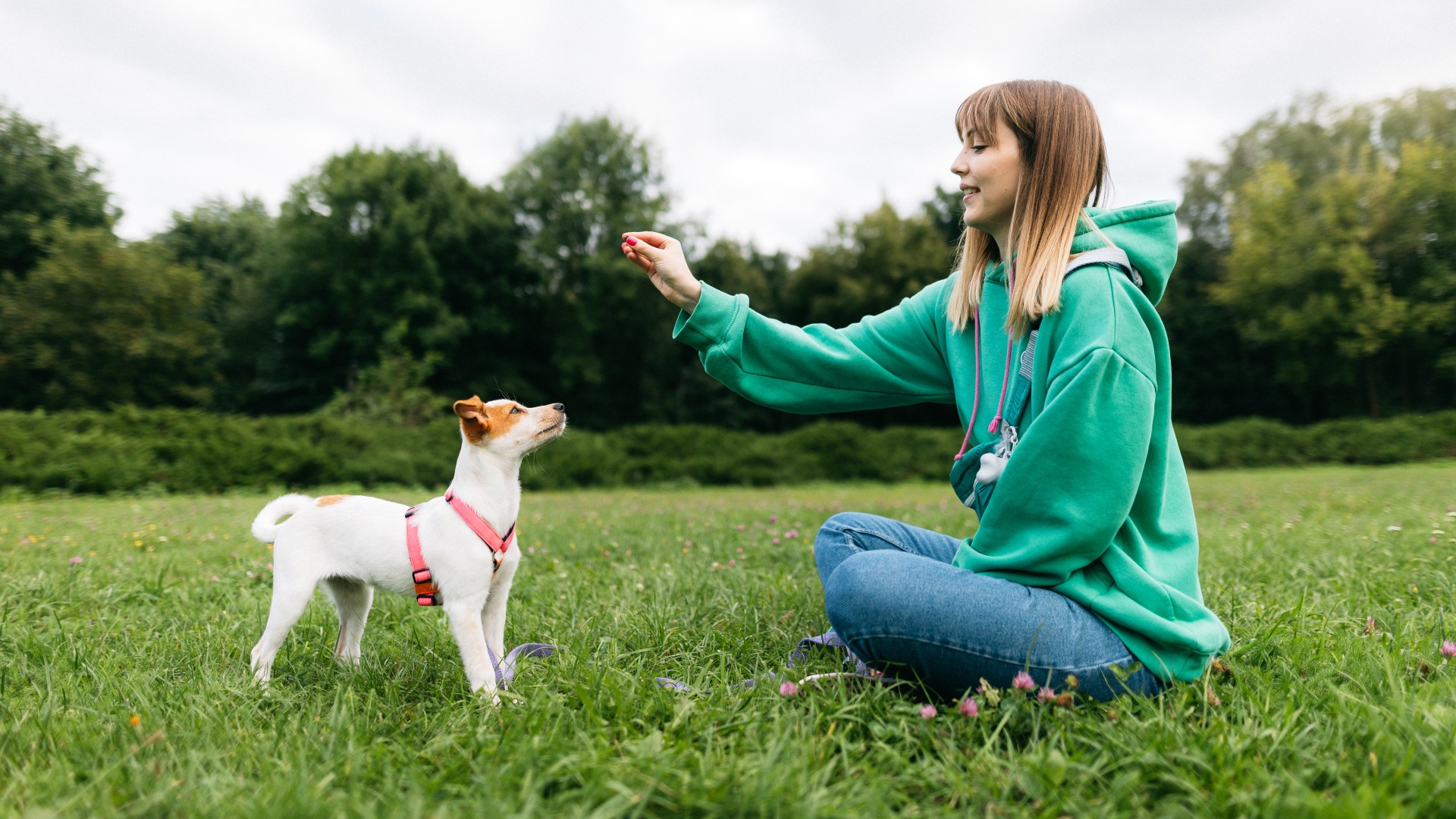Most dog parents skip this vital recall exercise — here’s why you shouldn’t
Do this before you add any distance or movement into your recall training

Get the best advice, tips and top tech for your beloved Pets
You are now subscribed
Your newsletter sign-up was successful
A strong recall is important for your dog – particularly if you’re ever planning on letting them off their leash in public.
Or even if not, it only takes a second for your dog to run out of the house, and sometimes all of the best dog treats in the world won't be enough to get them back.
So for both their safety and the safety of others, recall training for dogs is something that’s not to be rushed.
However, there’s one recall exercise in particular that’s important, but often missed by dog parents. And award-winning trainer Lisa Burton, of Listen Dog Training, is here to explain in a recent Instagram post.
A post shared by Lisa | Award-Winning Dog Trainer & Course Creator (@listendogtraining)
A photo posted by on
Burton explains that people often think recall training for dogs consists of calling their puppy over and then rewarding them.
However, she explains that there are three important concepts for your pup to learn first, before you introduce any movement or distance.
She explains that if you start recall training with any sort of distance incorporated into it, there won’t be a 100% success rate.
Get the best advice, tips and top tech for your beloved Pets
If your pup hears the recall cue but either doesn’t know how to respond or decides not to, and they’re reinforced for not responding, there’s less chance of your recall training being successful. (Here are 15 helpful ways to get your dog to come back to you on off leash walks, just in case your pup does decide not to engage.)
You want your puppy to come right up to you – not for them to run up to you but then stop when they think they’ve completed their task. In an emergency, this won’t keep them safe.
So, what can you do?
“Begin when your puppy is with you and already engaged with you,” says Burton. “Choose a brand new recall cue, give the cue, then immediately drop a high-value treat on the floor between your feet.”
She advises repeating this five or six times per training session, and repeating sessions two or three times a day for a few days.
She adds not to use their name as a recall cue, too, instead recommending a different cue that sounds clean and is only associated with recall.
Once you and your puppy nail this, and they form the association between the recall cue and the treat you ‘pay out’, you can begin to add more distractions, and some more distance too.
However, skipping this step isn’t the only recall error dog parents can inadvertently make. Here are three reasons why your dog’s recall isn’t reliable (and what you can do about it).

Adam is a freelance journalist specialising in pets, music and culture, and mental health and wellbeing. He investigates and writes the large majority of news on PetsRadar, and collaborates with veterinary experts to produce informative pet care content.
Adam has a journalism degree from Southampton Solent University and a masters degree in Magazine Journalism from Cardiff University. He was previously senior editor at dog advice website DogTime.com, and has also written for The Independent, GoodToKnow and Healthline.
He owns two rescue cats, Bunny and Dougie, and has also previously had a rabbit, fish and Roborovski dwarf hamsters.
